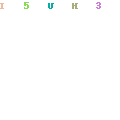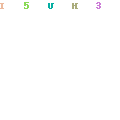there was a time when all of poetry was a
wild and endless epiphanybefore recollections rolled
anger roiled and ardour spentretreading bookstreet now where time is
liquid and burning
drowning infusions sugarblack
melting argument
smoking love— calcutta, crow III
Well-known academic Brinda Bose has published her 21 poems in a chapbook, collected over a small lifetime during the first part of this year’s pandemic lockdown.
The early poems bear an uncomfortable resemblance to TS Eliot; by the third poem in the collection Calcutta, Crow and other fragments she finds her voice in the poem about her ageing parents:
whoever knew
that such an ageless street as this
the ageing might reclaim
hunting stillfor themselves, for others, for books, coffee,
grass, frenzy and rapture
restless poems that spiral up and down
those grimy stairs
vomiting fear and tenderness
fervent, insomniac— calcutta, crow III
By the way, she mischievously informs us that around her ageing parent’s eyes are crowsfeet.
tracking bruises that broke and made you
fingering lightly
all the laughter that birthed the crowsfeet
at the corners of your eyes.
After the early four Crow poems – more indebted to Sylvia Plath than Ted Hughes – she gives us four idiosyncratically titled poems on months, a kind of truncated barah maasa, viz “november: water”, “december: tree”, “january: gravestone” and “february: pocket”.
there’s something solitary about november
like dark smudges on still waterlike waiting for a friend to return from the
river of summer
(or is it from some mountain fall)
not knowing that a prewinter bite has swallowed him wholehe’s left behind
in the chair that he would sink into
a hole
shaped like his laughing mouth— november: water
Or the sound of you, ringing lightly in my ear at an odd moment of afternoon when I tossed my head for the comfort of earrings swinging against my neck. A low sound it was, almost a memory of a whisper unheard. And then you fell out silently like a word unspoken and I flailed a cupped hand under my ear, my palm curved to catch a shooting star.
— february: pocket
A poem of unrequited young love captures a sensibility that is disappearing:
you said my eyes were like cactus flowers
… you said you’d wade into my cactus flower
eyes
slain again and again by pleasure and
surprisethat was a poem I wrote in youth.
there were no flowers that were my eyes.
there was no you.
there were only wanton pauper-poems
careening about
till
the pennies ran out— reprise
Then come the two prose poems collected under “words that bleed and fly 1 and 2”. The second one, “aubade”, is worth the whole collection. It is dedicated to another Bangla woman writer, Taslima Nasreen, a woman people equally love and hate for her personality and her poetry. The central metaphor of this poem addressed to a bidrohi Third World poet is a white cotton saree which is a battle flag, and which just as well could be used to herald a truce in the culture wars. The submerged metaphor is a refugee clothes bundle flung across a barbed wire fence at a border where it is impaled.
so you may land there but you shall not forget the words you left behind you in the lands you call your own, many cities that you had to leave one by one dhaka calcutta delhi trailing garlands of poems and prose and loves and conversations and writing, always writing. where can you go, where must you go, light and heavy on wings of words sharing stories and wine and the nostalgia of white. white summer sarees left behind at home…but wait, was that home?
…lives old and new are rolled up and hurled at the barbed wire fencing to pierce holes and squeeze dreams that are dead and dying through them like camels through eyes of needles
…just as you begin to believe that the roots are taking hold you must pack up your sarees and your stories in a weary suitcase and fly away again… the words find you again and again and tear into you and out of you and speed away to slam into other faces and names and tongues. to beat and flay and form fresh flags
of words, just like all your white summer sarees waiting to be worn and crushed and soiled with passion and poetry, splendidly done and undone in beauty, sadness and rage
— words that bleed and fly 2: aubade
In my opinion, this poem is worth the value of the entire collection. Women, gays and poets, when most poets are all three, are left to mourn unrequited love. Bose acquits herself in the task most unsentimentally and in a modern idiom. At the same time she touches her readers deeply:
a dream implodes like a fat gooseberry in the mouth
— invocation 1
And this is the whole of “invocation 3”:
passion is both enraged and tender
it’s where the shadow falls that
slays or spares that is all— invocation 3
The last poem, “poetry. still.”, talks about the two of you.
I take it to be a domestic setting in which a poet reconciles to everyday life inside the home and surrounding it even as she listens to “a snatch of voice” carrying her to a (fading) place where she wants to be, when
blood, skin, stone and bone batter
homes and hills, roads and trees, rivers and seas.
Bose has heard whispers in an adjacent room, freedom and commitment are not watertight compartments. They feed into each other – “Les Vases communicants” as the surrealist André Breton put it, “Nirvana’s in Samsara” as our rishis tell us. So though there is a steady acceptance of life and its domestic realities there is an emerging into the writerly life…The poem, and the collection, ends with an extended mutating image of liquid red, flowing like scarlet fruit juice from the mouth in an exultation of drinking. There is rebellion yet in colour, and there is poetry, say its last lines:
cries and whispers
gutted in a red room. the colour spills out
of the door and runs like a river down the
road outside your home into the
neighbour’s house like the juice of a
crushed pomegranate cruising down a chin
poetry. still.
Calcutta, Crow and Other Fragments, by Brinda Bose, Hawakal Publishers.
Source: https://scroll.in/article/973350/poet-hoshang-merchant-reads-and-annotates-academic-brinda-boses-collection-of-calcutta-poems


